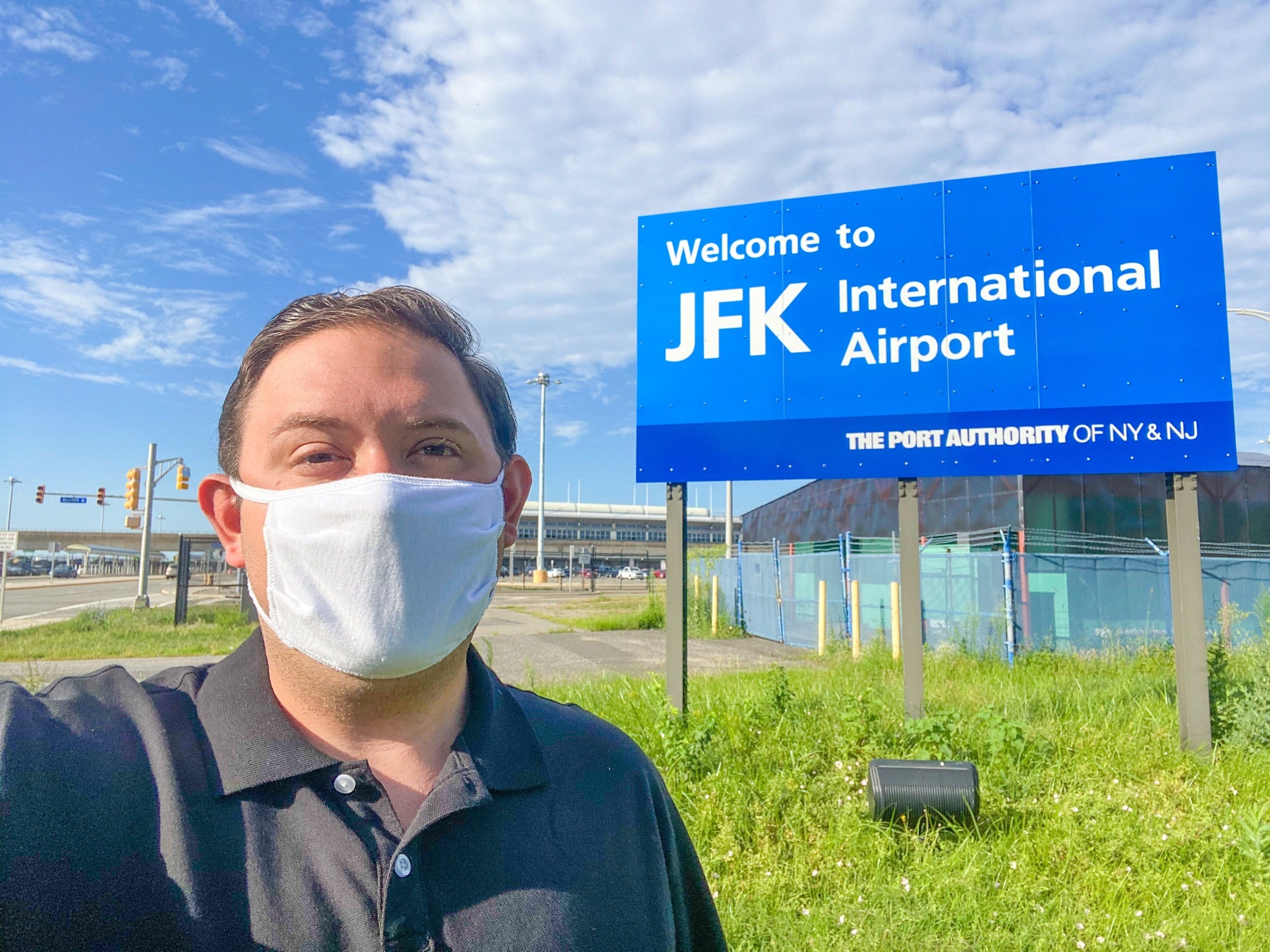- I flew out of New York’s John F. Kennedy International Airport on Monday for the first time since the pandemic struck the US.
- While the airport had implemented new safety features, the terminal from which I departed had a common-sense problem with poor management of simple operations like the security screening checkpoint line.
- JetBlue – the main tenant of terminal – was, however, proactive in implementing social distancing reminders in the gate area, jetway, and other high traffic areas.
- Visit Business Insider’s homepage for more stories.
John F. Kennedy International is my home airport as a New Yorker and from where nearly all of my trips departed before the pandemic. When I landed back there in February following a trip to Orlando, I never expected that it would take six months for me to return there for a flight and I was even scheduled to depart from there to Spain the day after President Donald Trump’s proclamation that essentially closed our borders with Europe.
Flying JetBlue Airways from New York to Chicago on Monday brought me back to Kennedy for my first flight out of New York’s largest airport since the pandemic took full force in March. It wasn’t the homecoming I had expected, with only a fraction of the passengers passing through compared to what I was expecting and it was the first time I’d have to wear a face covering in the airport.
It was the second airport in the purview of the Port Authority of New York and New Jersey’s airport system that I had utilized since the pandemic – the first being the new Terminal B at LaGuardia Airport. But despite Kennedy having a better reputation than smaller LaGuardia, the differences couldn’t have been any more pronounced with the former lacking in multiple areas.
Here’s what you can expect when flying out of JFK Airport.
My journey through the airport began at the JFK AirTrain station for long-term parking.

It's the cheapest daily lot for the airport at $18 per day but the normally jammed-packed parking field was basically deserted beyond the first few rows with visitors having no problem finding a close spot to the station.
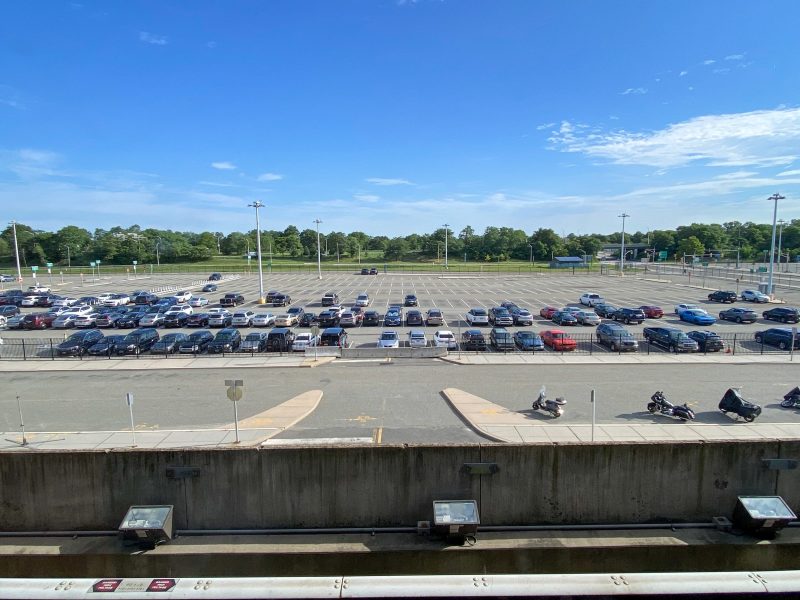
I was initially surprised walking into the station that there was no external signage informing riders about the Port Authority's face covering rule for the airports...

But then immediately saw the blue, white, and yellow sign as soon as I walked in the door.

The first thing I noticed on the platform level was the AirTrain was running on a reduced schedule, with wait times in between trains averaging around 10 minutes.

It was par for the course as ridership was down with the station noticeably empty as only myself and a small handful of riders – mostly airport employees – were awaiting the next train.
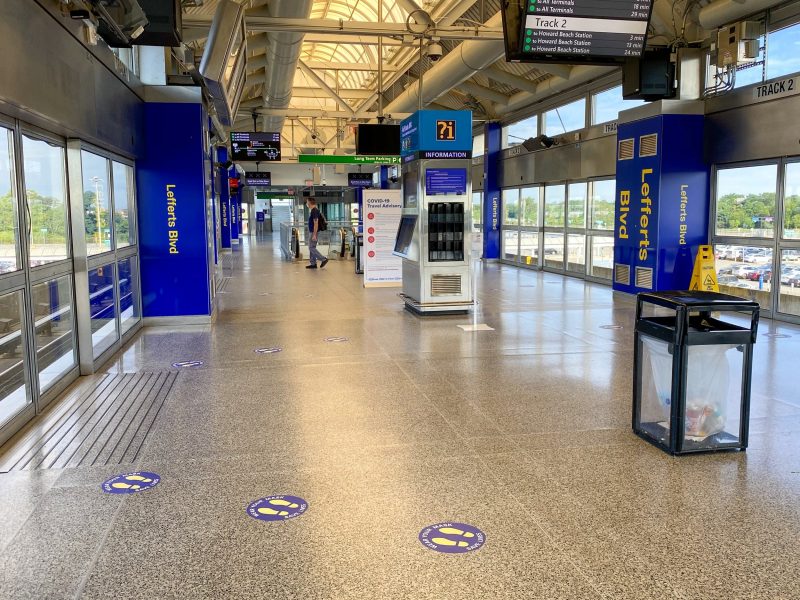
Despite the low traffic, the Port Authority had retrofitted the station with new safety features like hand sanitizer stations and all benches had been removed.

Placards on the floor didn't demarcate six feet of distancing but did give a stark call to action: "Wear a mask. Save lives."

After a few minutes of waiting, the automated tram arrived for the 3.5-mile journey to JetBlue's Terminal 5 that typically takes under 15 minutes.

It was the cleanest – as well as the emptiest – I had ever seen the AirTrain in all my years of loyal ridership.

Even the windows were spotless and clear enough to get this photo of the new TWA Hotel that opened in 2019.

The Terminal 5 AirTrain stop isn't located within the building itself so accessing it would require a short walk down a normally-busy connector.

But the walk was more deserted than the train I had just disembarked, even for 9 a.m. on a Monday.

Social distancing was not an issue in this part of the journey — there was nobody around to steer clear of.

The short walk ended with an old familiar welcome sign but it was becoming clear that it was the only familiar sight I'd see during my visit. Everything else had changed.
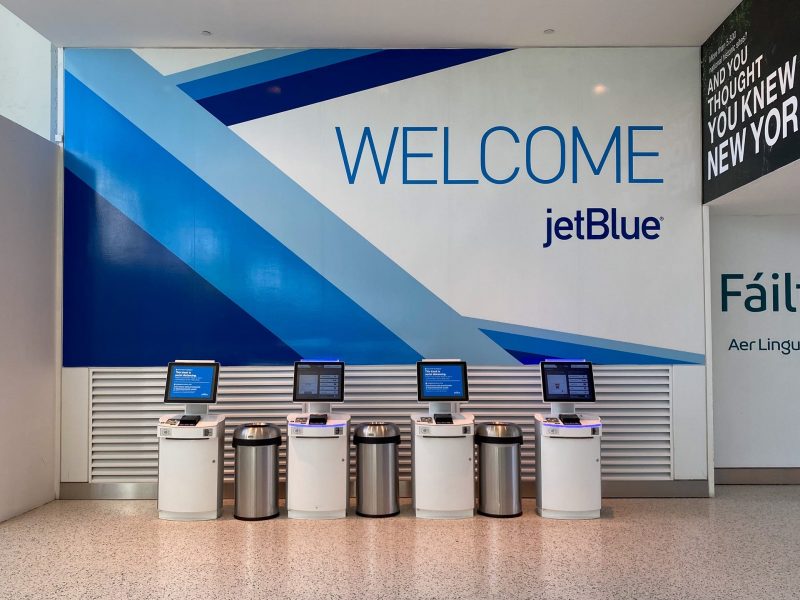
JetBlue – like many major US airlines – was blocking every other kiosk to allow for distancing.

Why they didn't just block the two center kiosks, however, remained a mystery.

Terminal 5 at JFK Airport is used near-exclusively by JetBlue as its primary hub but the day's departures were lower than normal, with the airline canceling and consolidating flights when demand dictated.

The first glimpse of a normal airport came as I descended into the main check-in area of the terminal.
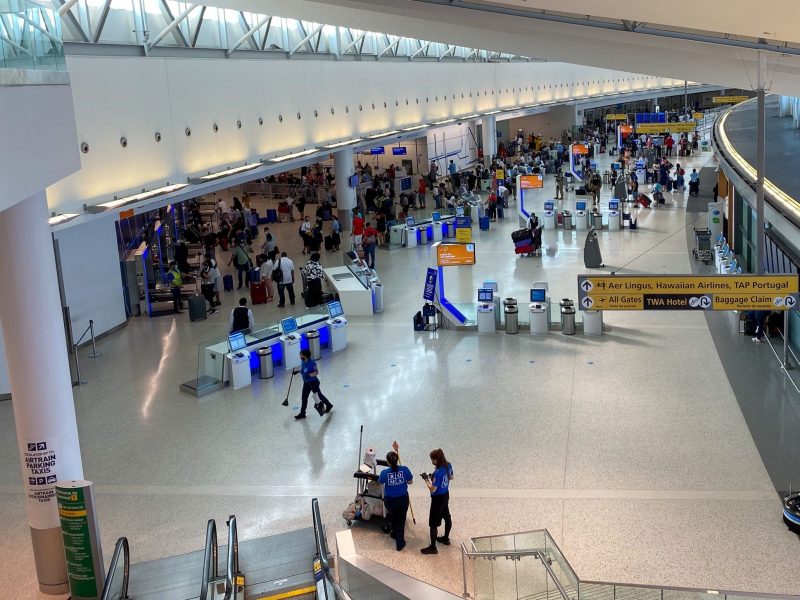
It certainly wasn't the normal levels I was used to but a good showing, especially as 737,325 passengers flew out of US airports on that day compared to 2.6 million on the same day in 2019.

Passengers appeared to be respectful of distancing in the terminal though in some areas, like the bag drop, lines formed that made staying six feet apart slightly more difficult.

Then came the most stressful part of the journey, going through the security screening.
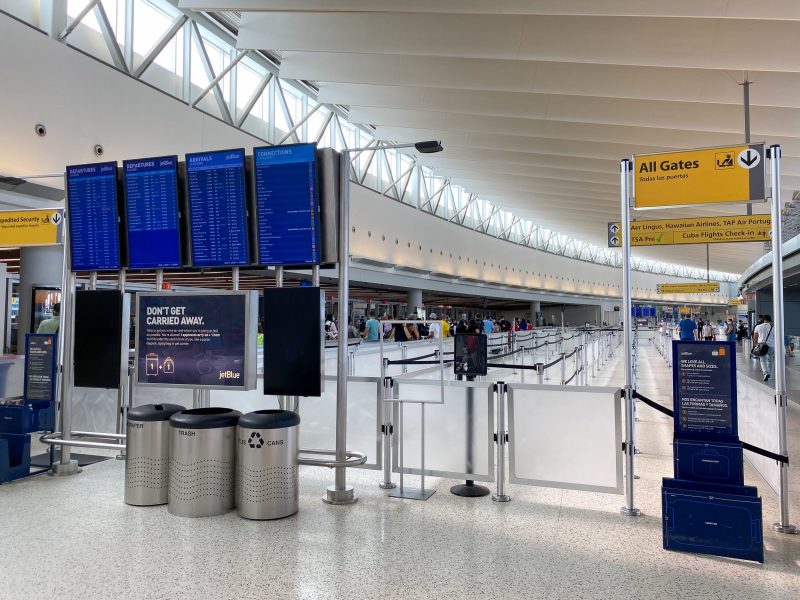
JetBlue has plenty of space for a security screening line but for whatever reason wasn’t using it to maintain social distancing between passengers.

All passengers, instead, were funneled to a smaller line that backed up into the terminal.
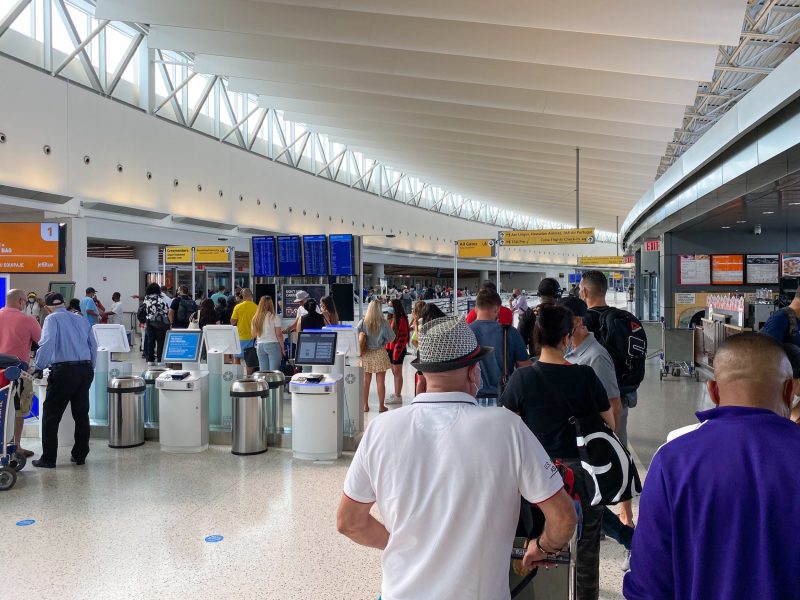
It was chaotic and confusing as passengers didn't know where to go, especially those with TSA PreCheck or those who purchased access to an expedited line.
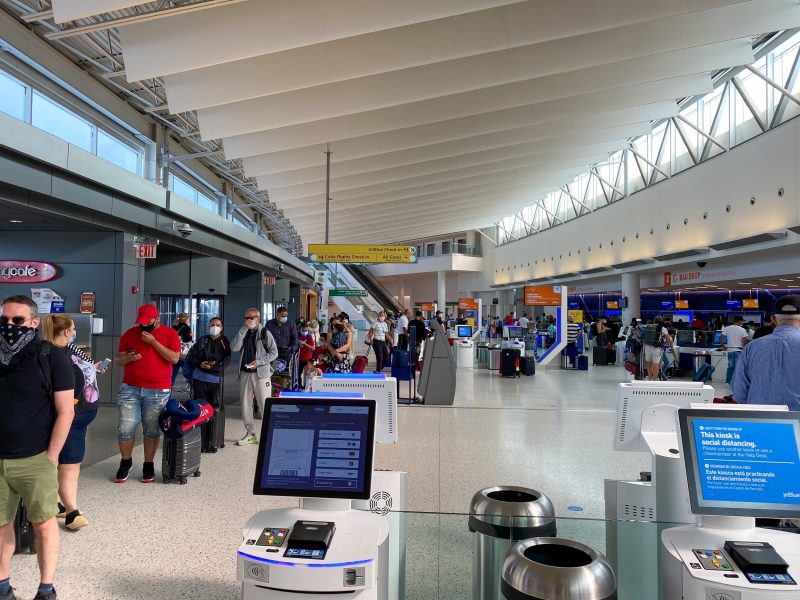
Filing us into one line wasn't the best use of the infrastructure, seeing as using the overflow area would've guaranteed social distancing.
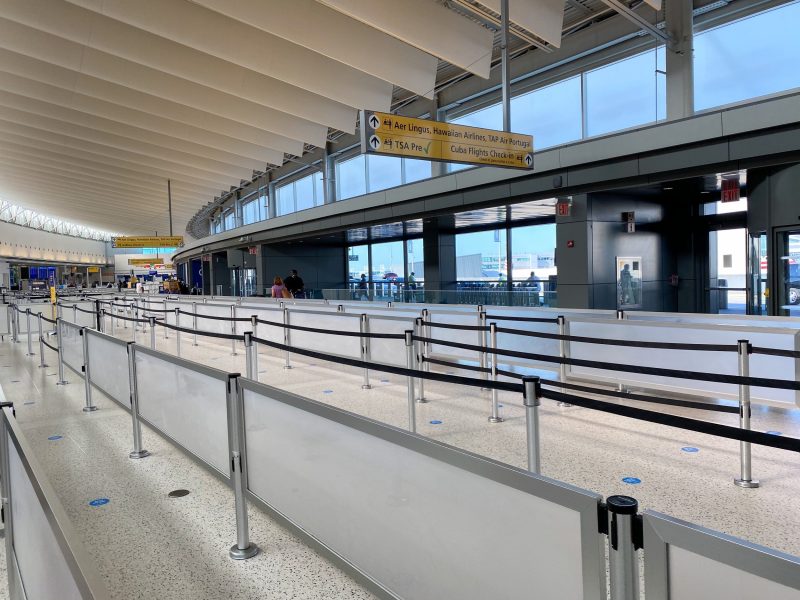
It was a short wait once we got on the formal line and passed through the initial boarding pass check.
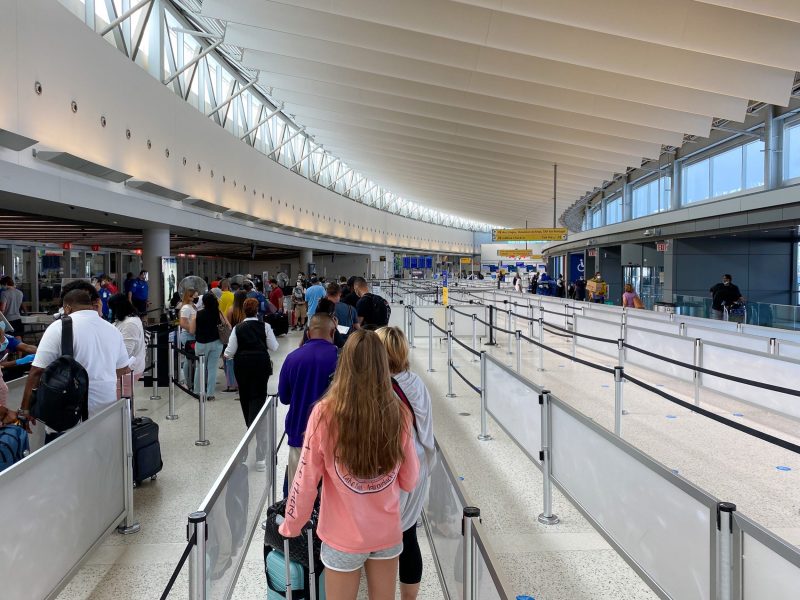
The TSA PreCheck lane was closed though all passengers with the service would be excused from removing their shoes, belts, jackets, etc.
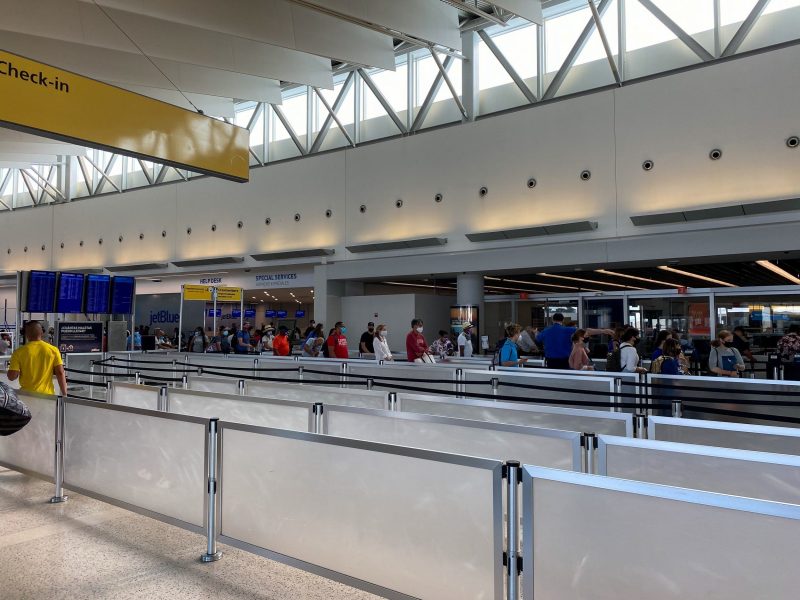
While on the line, I noticed that JetBlue had placed floor placards six feet apart and staff were actively monitoring lengths between passengers to ensure proper distancing.

Despite the chaos, going through security only took around 10 minutes and I found myself in the now-empty Terminal 5 atrium, through which I'd walked to catch countless flights in the past.

The center of the atrium had a single social distancing reminder with this being the first and last time I saw any signage like this in the terminal.

Formal dining in the terminal was largely closed with New York City still restricting indoor dinning as part of its reopening plan.

Even quick-service food spots remained closed.
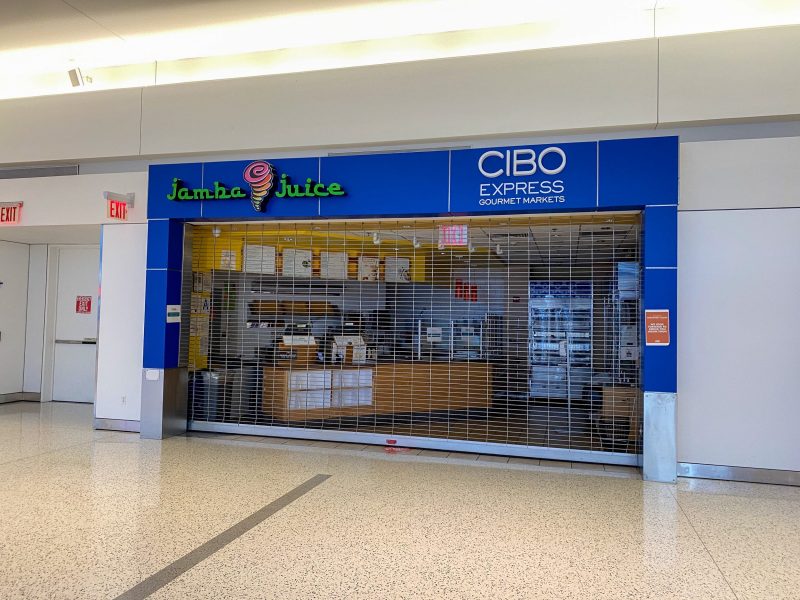
The Terminal 5 food court was open, however, but with a modified offering.
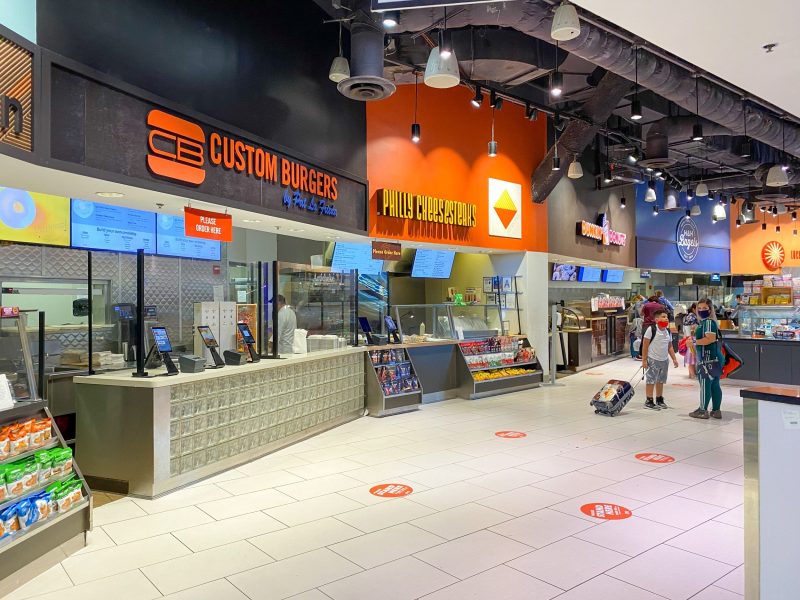
The hot food buffet was replaced by grab-and-go snacks.

OTG, which operates the food court, had placed social distancing floor placards and hand sanitizer stations in the area for customers.

Outside of the terminal's businesses, there were very few hand sanitizer or wipe stations, a far cry from the new LaGuardia Airport Terminal B which is also under the Port Authority's purview.

Social distancing signage, for the most part, was the responsibility of the terminal's occupants, with JetBlue-branded placards lining the gate area...
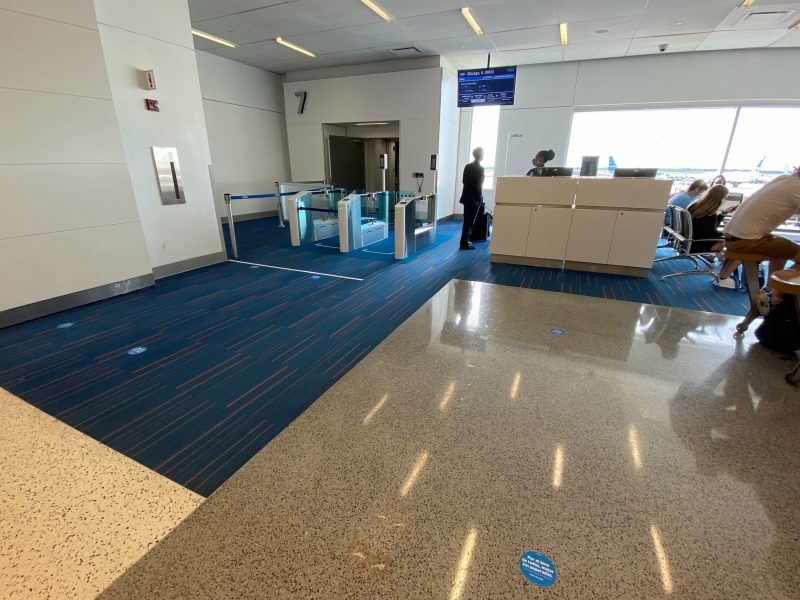
Seats in the gate area...

And the jetway leading up to the aircraft.

A cool, new feature of the JetBlue terminal is the self-boarding gate where passengers scan their own boarding pass without interacting with the gate agent.

I didn't get to test it out, unfortunately, as it didn't recognize my boarding pass.
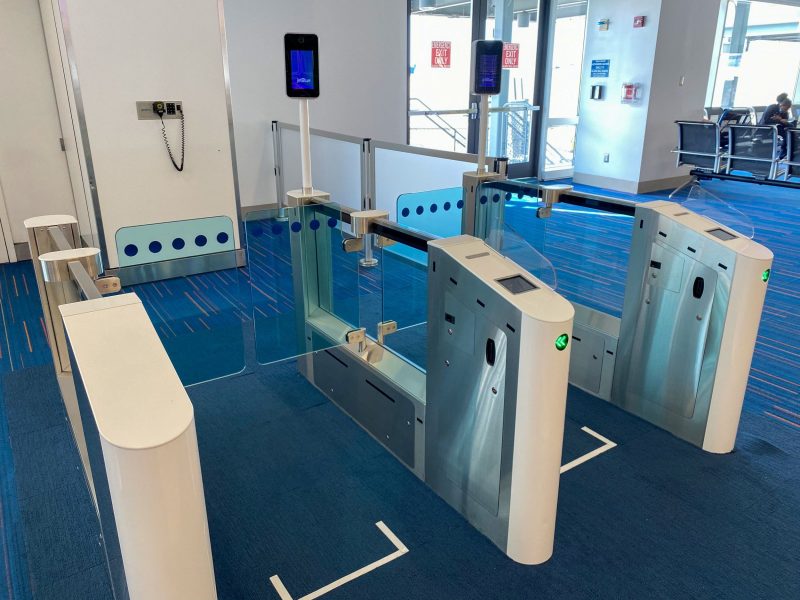
Departing from the airport during what would normally be the morning rush was incredibly quick and efficient.

A quick taxi to Runway 22R saw us airborne around 10 minutes from the time we pushed back from the gate with no delay or aircraft to wait behind.
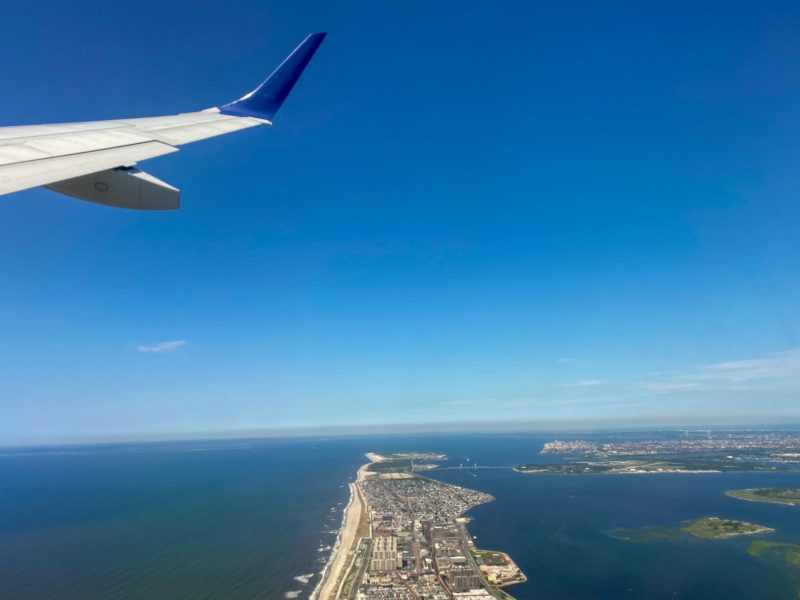
The biggest issues with my visit occurred in the terminal, with a lack of common sense at times from the airline and airport staff when attempting to effect social distancing. Something as easy as navigating the security checkpoint turned into a nightmare because of a lack of communication and coordination.
The terminal, fortunately, was empty enough where the issues didn't create too much friction but if my experience was a preparedness test for when travel rebounds to normal, it would not have passed.
JetBlue, however, appeared to be doing a great job with plenty of physical social distancing reminders in the gate area and high traffic areas, as well as implementing self-boarding gates to reduce touchpoints for passengers.

